An Interview with Richard Striner
An Interview with Richard Striner regarding His New Book: Summoned to Glory: The Audacious Life of Abraham Lincoln (Rowman & Littlefield, 2020)
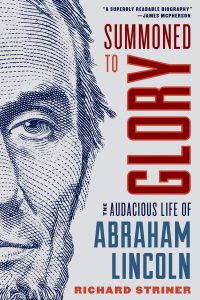
Sara Gabbard: The obvious first question should be about your use of the word Audacious in the title. When did you first realize that this word represented the conclusions of your study?
Richard Striner: For years I had been unhappy with the way in which Lincoln was portrayed in popular biographies. Back in 1952, one biographer claimed that Lincoln’s mind and body “moved slowly, as is likely to be the way with country people.” That’s not only a silly generalization regarding the ways of “country people” — did farmers “move slowly” when they danced jigs and reels in a hoe-down? — it’s also, to say the least, a one-dimensional characterization of Lincoln. There were many different sides to the man and his moods would shift — as our own moods will shift. In the heat of excitement (according to a great many reminiscences) his powers were dazzling. The evidence overflows with accounts of his witty remarks and swift analysis, his skill in trading barbed exchanges with his foes, his fluent repartee as a humorist, and his astonishing knack for getting straight to the heart of a problem while others were dithering.
In 1995, another Lincoln biographer claimed that Lincoln’s life displayed an “essential passivity,” a “reluctance to take the initiative and make bold plans.” That’s completely the reverse of the Lincoln I came to know in my studies. The question as to how this stereotype of a ponderous, slow-moving, and “passive” Lincoln developed is an interesting problem in the study of popular culture.
I challenged the stereotype in 2006 with my book Father Abraham. I argued that Lincoln was a brilliant strategist, superb in the orchestration of power and gifted with a matchless ability to perceive both the best-case and worst-case contingencies and use his mental powers with precision to shape the future. Since then, the analysis of Michael Burlingame in his massive two-volume life of Lincoln came to similar conclusions. And yet the tired old stereotype has not diminished in the slightest — or so it seems to me.
My interest in Lincoln the man kept increasing, for the more I reflected on the nature of his overall historical achievements, the more I considered the way in which his personal development made them possible. So at last I made the big decision to join the crowded field of Lincoln biographers. I wanted to write something far more decisive than any other book or essay of mine that had been published to date to change the climate of opinion. But I also did it for a simpler and far more personal reason: to gratify my growing curiosity.
As I shared my intention to produce my own Lincoln biography, the predictable and understandable question was aimed at me: “what on earth could be said about Lincoln at this late date that is in any way new?” So I had to choose a title and a subtitle with the power to convey a preliminary sense of what I had to say. I had to choose some words that would challenge the persistent old stereotype with a dramatic gesture. I had to compose a real proclamation of a title that would dish out a frontal assault upon the stale old notions and thereby (hopefully) bring about a radical and necessary shift in public perceptions.
I chose a term that would constitute a dialectical challenge to the notion of “passivity.” I called Lincoln “audacious” for very good reason, for I do believe that he acted with audacity to shape the course of history. At times — when he was playing for time — the “passivity” that he might seem to display was a ploy, a delaying tactic, a maneuver in a grand strategic plan that he kept deeply hidden.
But it needs to be distinctly understood that I am speaking here of Lincoln as he was when he had reached the very summit of his powers. In his early emotional crises, when the man was paralyzed by suicidal grief or in the throes of neurotic self-doubt, his audacity was clearly on the wane, and that is perfectly obvious. It was only through a process of gradual self-discovery and self-strengthening — intersected by the national crises that were convulsing America — that the full magnificence of Lincoln’s potentialities got drawn to the surface in a manner that was channeled into action. His potentialities were . . . “summoned” — drawn forth.
SG: What did you find in your research that you had not known before?
RS: I learned about a number of things in the course of my research that rounded out my understanding of Lincoln. The most important new insight for me was the profound relationship between Lincoln’s law practice and his brilliance as a presidential strategist. Everything that Lincoln did for a client — and this is of course an essential part of practicing law for any attorney — was grounded in strategy, whether the outcome turned out to be a victory in court or an out-of-court settlement. The accounts of Lincoln’s victories — sometimes set forth in newspaper coverage and sometimes in the memoirs of other attorneys — show his sheer virtuosity in out-maneuvering opponents. And the stories show his skill as a performer. Many rivals called him the best trial lawyer in Illinois because of his power to persuade juries. Depending on the nature of the case and the nature of the evidence, Lincoln might use his mastery of logic to convince a jury or else he might weave a kind of spell that was persuasive in ways that made logic irrelevant. He could play upon the jurors’ emotions, sometimes through innuendo, sometimes through the charms of gentle humor, sometimes through withering sarcasm, sometimes through righteous indignation. And he was nimble: he would vary his behavior as necessary to lure his opponents into a trap and then catch them by surprise when it was far too late for them to recover.
His career in practicing law turned out to be a proving ground for the skills that he would use later on to defeat his political opponents and by doing so change the trajectory of history on the grand scale. He out-maneuvered them all: the Confederates, the white-supremacist Democrats, the Republican rivals in the cabinet who tried to sabotage him — everyone. Of course there were some very close calls and there were times when he came close to losing, especially in 1864. But he prevailed in the end and his victory was one of the great turning-points in history, not only for America but for the world.
One of the most controversial (and admittedly speculative) themes in my work on Lincoln is my challenge to the conventional vision of the post-war future — Reconstruction — if Lincoln had lived. Almost everything that Lincoln did in the springtime of 1865 reveals — to my satisfaction — that he was building a dynamic partnership with the Radical Republicans that might very well have given America its great civil rights revolution a hundred years earlier.
One can never write a “history” of things that never happened but history does show the radical contingency of life. Every action and every inaction — every choice that we make — creates a different future, and I call the final chapter of the book “stolen future” because the transformational strategy that Lincoln was shaping in the springtime of 1865 is so thrilling to ponder and so mournful to contemplate, thanks to John Wilkes Booth.
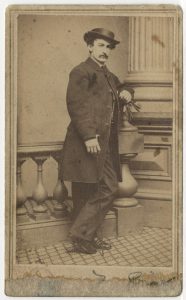
I learned a number of things in the course of my research that make me more convinced than ever that Lincoln’s mental gifts — his creativity, his flexibility, his adroitness and boldness as a strategist — would have guided and supported the Radical Republicans as they worked to transform America. I’ll mention one example of a problem Lincoln solved that might well have baffled lesser minds: the constitutional impediments that Republicans faced in the carving of a new state, West Virginia, out of an existing state, Virginia. I haven’t time to go into the details — my book explains them — but Lincoln found a way to solve a thorny problem with breathtaking ease, and as soon as I studied what he did I could see the way his new precedent could have been useful for the Radical Republicans after the war. This was something new that I had not known before.
SG: What did you find that made you say: I never thought of it that way?
RS: In my previous work on Lincoln, I had focused on the aspects of his life that impressed me the most: his skill as a moral leader who worked in synergistic partnership with the abolitionists — an insider/outsider orchestration that many of the anti-slavery leaders never fully appreciated, though William Lloyd Garrison began to understand it by the end — and also on the vexed question of Lincoln’s racial views, a subject that I took the time to analyze in detail when I wrote my book Lincoln and Race. In taking on Lincoln’s life story, I had to give more attention than before to a subject that genuinely interested me: his emotional and intellectual development. Many Lincoln scholars, especially Joshua Wolf Shenk, have already done important work on his emotional life, but I had to think it all through for myself and then arrive at my own conclusions. In the process I thought long and hard about another vexed question of Lincoln controversy: his relationship with Mary Todd Lincoln.
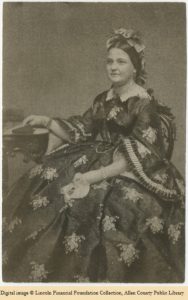
I had paid less attention to the controversies in regard to that subject than I had to the political issues that preoccupied me. But once I began to immerse myself in the surviving evidence — as well as the contemporaneous controversies — I found the issues compelling. And I found that my opinions were shifting as I looked at different sides of the issues, not least of all in response to the comments of people who were reading my manuscript.
Indeed, I continue to find these issues so extremely compelling that I am going to share some rather lengthy reflections on the subject. I put some of this material into the book but I could not include it all. Many of the issues are so highly subjective that to cover them at all would have led to some very long digressions.
There can be no question about the fact that the Lincoln marriage was troubled, but people these days are embroiled in an angry “blame game” about Mary’s personal problems and her personal culpability. It seems plain enough to me that her behavior at its worst could be bad — very bad — but the allegations of gender bias that have flown back and forth in this debate have a measure of validity.
The accounts of Mary scolding Lincoln — scolding him in a very shrill manner — are too numerous to be dismissed. These encounters were apparently one-sided arguments, since the people who witnessed them said that Lincoln’s behavior was quite inoffensive and mild. We must come to our own conclusions regarding these incidents. And we must also come to our own conclusions regarding Mary Lincoln’s personality.
A number of people who read early drafts of my manuscript cautioned me about being too judgmental in the case of Mary Todd Lincoln. Both Mary and Abraham were troubled by emotional conditions that would justify the use of “mood meds” in our own day and age, and Mary seems to have been struggling with tremendous anxiety that needed an outlet. The more that I considered these views that were offered to me by readers of my manuscript, the more I concluded that they made a great deal of sense. Also, I found significant evidence of affection in the letters that Abraham and Mary exchanged, especially when it came to the shared experience of parenthood.
Still, no one these days (at least as far as I know) is disputing the fact that the Lincolns’ marriage was troubled, for the weight of the evidence is clear. For this reason many students of Lincoln have sought to understand the dynamics of his marriage in relation to his love life in general.
In the past generation, a huge revision of opinion has established beyond any reasonable doubt that the romance between Lincoln and Ann Rutledge was real and that her untimely death plunged him into a near-suicidal depression. The more I pondered his subsequent and ill-advised courtship of Mary Owens, the more I compared it to his on-again/off-again courtship of Mary Todd, and then I came to the conclusion that William Herndon may well have been partially correct when he argued that Lincoln was incapable of loving any other woman with erotic fervor after losing Ann.
I say partially correct, because one has to acknowledge here the allegations that Lincoln fell briefly and ardently in love with the beautiful Matilda Edwards in the midst of the Mary Todd courtship, and this led him to feel such a sense of guilt in regard to his dealings with Mary that he plunged again into depression. But if the allegations were true — and it appears that they were — we have no way of knowing how the episode with Matilda ended. Did she fail to reciprocate Lincoln’s interest? Was she receptive to courtship? Was she merely being flirtatious? We don’t know.
It struck me that Herndon perhaps only scratched the surface of this situation. I think it likely that Lincoln was afraid to fall deeply in love again, lest the loss of another woman as wonderful as Ann might drive him straight into suicidal madness from which there might be no recovery. There is no way that I can prove such a thing but it makes a kind of sense as one reads his correspondence with Joshua Speed about the emotional perils of romance.
One other thing about the Lincoln marriage. There are many different kinds of love, and the nuances of relationships can be very complex in regard to the emotional needs that they address. Lincoln’s behavior as a husband struck me as being in a number of respects paternal in tone, and if Mary was looking (unconsciously, no doubt) for a father-figure, Lincoln might have been happy to oblige for two reasons: (1) it established the basis for a close emotional bond that might have compensated for the fact that the Lincolns were far from being soul-mates with all of the recurrent tensions that littered their marriage, and (2) it might have served as a different sort of compensation for Lincoln since it gave him a chance to act out the sort of behavior — the behavior of a kind and understanding father — that he had never received from his own father, Thomas Lincoln.
Yes, I often said to myself “I never thought of that” as I considered these issues, especially since I was examining some evidence that I had not had occasion to explore in my previous work and I was also encountering the views of other people whose opinions I respect.
SG: Have there been changes in the way that historians have looked at Lincoln in the last 70 years?
RS: The way that we look at the past is always shaped by the times in which we live. This is simply the human condition. Most of our mental life is focused on the present as a matter of necessity — no matter how often we think of the past or the future — and our thoughts and emotions simply have to be engaged with the present. It’s inevitable that the questions we ask of the past if we think about history will tend to be infused with the preoccupations and presuppositions of the present.
Historians will tend to behave in this way as much as anybody else, and so the schools of thought in the field of Lincoln scholarship have reflected the passions and hopes and fears and controversies of contemporaneity.
The contemporaneous issues that have shaped the way in which historians view Lincoln have changed with the flow of events and with the ever-changing dynamics of the controversies that preoccupy Americans. The most important of these have been the issues of war and peace, the issues of race relations, and the issues of social justice.
Historians’ views of Lincoln have been affected by World Wars I and II, by the great civil rights revolution of the 20th century, by the protests against the Vietnam War, by the landmark events and the ever-changing trends in American race relations since the 1960s — landmarks and trends like the Obama and Trump presidencies, the latter in many ways a backlash against the former. I have written some essays myself that compare the Republican Party of Lincoln and the very same party today — if it really is the very same party, and of course it is no such thing.
World War II and the great civil rights revolution were perhaps the most important “game changers,” as we say in contemporary slang, in shaping the way that historians view Lincoln. In the 1920s and 1930s, a powerful school of thought among academic historians was “Civil War Revisionism,” so-called. The revision in question was a challenge to the dominant school of thought around the turn of the twentieth century, a school of thought that celebrated America’s achievement in surviving Civil War and emerging re-unified and stronger. Hence the tributes to Lincoln as the Savior of the Union, tributes that were physically immortalized in the Lincoln Memorial.
The Civil War Revisionists challenged this view because they, like a multitude of people in America and Europe, were appalled by what seemed to them the meaningless slaughter of World War I, and this wave of opinion and feeling was reflected in both the isolationism that ruled American foreign policy and the appeasement of Hitler by the western democracies in general. Nothing could be worse, many people believed, than another world war, and so war simply had to be averted at all costs.
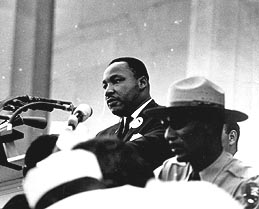
The Civil War Revisionists participated in this climate of opinion, and the backward prism through which they viewed the Civil War was the prism of World War I. Hence the thesis that the Civil War was “unnecessary,” that the slaughter could and should have been avoided through additional compromises of the sort that Henry Clay had orchestrated, that the Civil War should be viewed as the one great failure of American political institutions, and that a “blundering generation” of American political leaders was to blame for all the needless death. The effect of this overall view was to diminish the reputation of Lincoln and exalt the reputation of his foe Stephen Douglas. But as the events that led to World War II were shaping up, the American opponents of Nazism and Fascism looked to Lincoln as the great exemplar of leadership that defends human freedom in the face of tyranny.
One example is the work of Harry V. Jaffa, an academician who was not, strictly speaking, a historian but rather a scholar of political philosophy. In 1958, upon the centennial of the Lincoln-Douglas debates, he took on the Civil War Revisionists in scathing terms, and his views — which were largely in tune with the emergent school of “Post-Revisionism” among Civil War historians — were no doubt influenced greatly by America’s achievement in the great coalition that defeated the Axis, as well as by the grassroots protest movement led by people like Martin Luther King, Jr., the movement which, upon the Civil War’s centennial in the 1960s, challenged Americans to revisit the unresolved issues of Lincoln’s America. It was no accident that the dramatic Civil Rights march of 1963 would converge upon the Lincoln Memorial, where King gave his “I Have a Dream” speech.
But the politics of the 1960s changed with Kennedy’s assassination, with the escalation of the Vietnam War, and with the “Black Power” movement that was starting to emerge well before the passage of the landmark Civil Rights Act of 1964 and Voting Rights Act of 1965. The anti-war movement and the new generation of militant African American leaders — who were starting to challenge the ethos of King well before his assassination — began to affect the reputation of Lincoln among academic historians, especially among the radical “New Left” historians who became the great opinion leaders in the field by the time of the Nixon era.
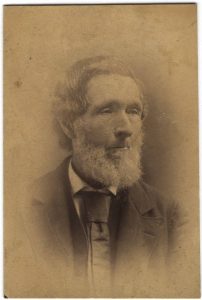
For the past forty years or so, historians have been arguing about how much credit Lincoln ought to be given for America’s progress toward racial equality. Historians have disagreed about the question of whether Lincoln was guilty of harboring white supremacist views, whether he was in essence nothing more than a moderate Unionist after all, and whether he should really be given much credit for being the “Great Emancipator.” These questions were raised very prominently in the hugely influential documentary film series on the Civil War by Ken Burns. Lincoln’s reputation was in many ways diminished by the narrative script and by some of the interviews included in that film series.
SG: Please comment on the value to historians of information provided by William Herndon.
RS: The oral history project that Herndon commenced after Lincoln’s death presents a gold mine for scholars provided that the interviews are sifted with intelligence. Douglas Wilson and Rodney David performed a great service for scholars when they arranged, edited, and published Herndon’s interview notes in their book Herndon’s Informants. They performed another service when they commented shrewdly in the book’s introduction on the controversies that used to surround the credibility of Herndon’s information. By the mid-twentieth century, Lincoln scholars had succumbed to a foolish and pseudo-scientific perfectionism when it came to the use of such evidence; they stressed over and over again how hard it is trust the human memory and how suspicious almost any reminiscence can be. The result was to cast aside a great deal of useful and interesting material. Their bias against oral history may be usefully compared to the crude and bossy tenets of “Logical Positivism,” the contemporaneous movement in philosophy demanding that every single statement must demonstrate a single, perfect, and precise denotation, or else be discarded as “meaningless.” Such perfectionism is blind to all the meaning that can only be conveyed through the subtlety of nuance. Herndon was aware of all the perils that the oral history method entailed, and he sought to attain as much cross-corroboration as possible. He said again and again that he was trying to get at the facts. The key to making good use of his interviews is to look for the patterns of cross-corroboration that Herndon himself sought to find. If one reminiscence after another makes substantially the same allegation, it is safe to conclude that the reminiscences are useful. But there is no escape from the task of applying our own powers of critical analysis in sizing up the evidence. We have to trust our own judgment, arrive at our conclusions, and admit that in cases where the evidence base is ambiguous we may be mistaken. If we hesitate to do that, there is no way that pseudo-science can help us.
Richard Striner is Professor of History at Washington College.
